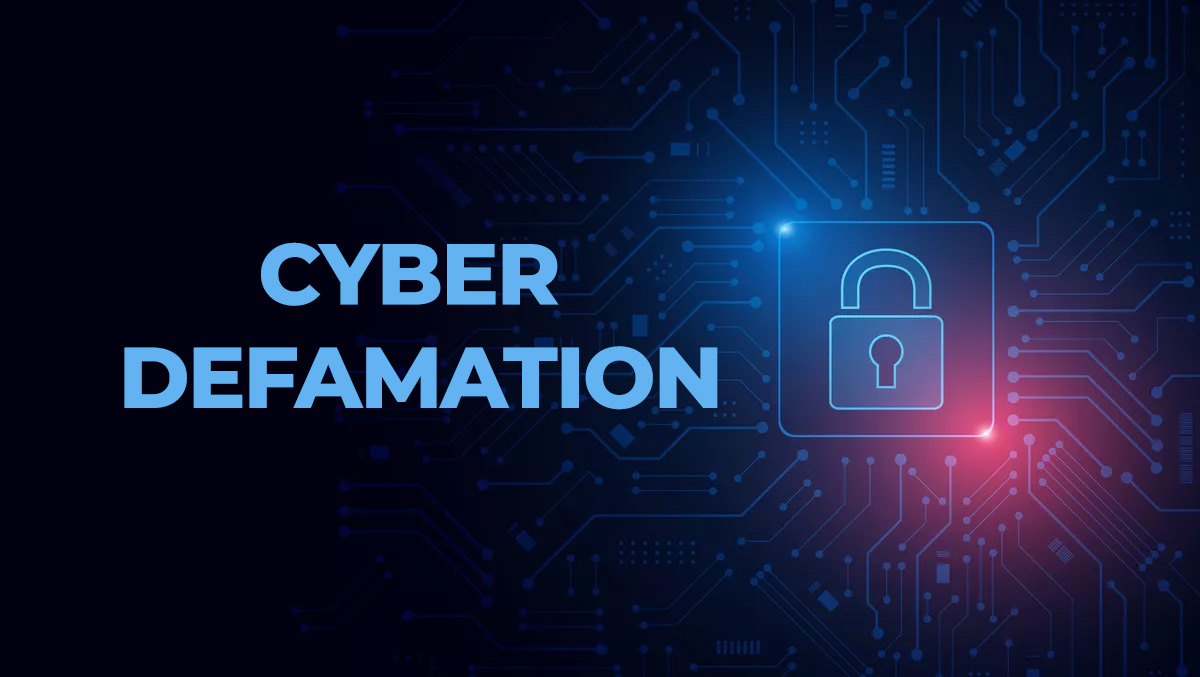
How to Tackle Cyber Defamation and Protect Your Online Image
Imagine waking up to multiple false accusations or offensive posts on social media and unsure of how to deal with cyber defamation.
Your mailbox is overflowing with messages that throw doubt on your moral character.
Cyber defamation is becoming a more serious concern. It involves spreading inaccurate or harmful information online to people or companies.
Cyber defamation can result in financial loss, mental distress, and reputational damage, regardless of whether it takes the form of a negative post or a fraudulent review.
Anyone can become a victim of cyber defamation due to social media, blogs, and forums. Tackling these attacks is essential, regardless of whether they are malicious accusations or fake reviews.
Your online reputation management is important; it is not only a luxury. Let’s explore what cyber defamation is, how it affects people, and how to avoid it.
Understand the Cyber Defamation Types
Cyber defamation may occur in numerous forms, each with its own set of difficulties:
- Slander: Slander is the use of verbal defamation to damage someone’s reputation.
- Libel: Libel occurs when someone is harmed by written or published incorrect information.
- Cyberbullying: This refers to emotional suffering caused by online abuse or intimidation.
- Revenge porn: It involves the sharing of pornographic material without permission in order to harm someone’s reputation.
- Fake Reviews: Posting false reviews in an attempt to damage a person’s or company’s reputation.
- Impersonation: It is the creation of false profiles with the intention of spreading false and damaging information.
- Hate Speech: False claims made against individuals or groups because of their identity.
- False Allegations: Online accusations that do harm to one’s reputation or career.
- Doxing: When someone is harassed or intimidated, personal information is publicly disclosed.
- Harassment and stalking: Persistent internet harassment that damages a person’s reputation.
Although the effects of each sort of cyber defamation vary from person to person, they typically lead to emotional suffering and reputational harm.
Indian Laws Guarding Against Cyber Defamation
Cyber defamation is covered by both civil and criminal laws in India.
- Defamation is defined and punished in Sections 499 and 500 of the Indian Penal Code.
- Legal action for internet violations such as impersonation and fraudulent content is provided by the IT Act of 2000.
- The right to privacy protects against the improper use of personal data.
Be aware of your rights enables you to act quickly. You can speak with attorneys who specialize in instances involving online defamation or lodge complaints with the local government.
How to Protect Against Online Defamation
It’s important that you protect your online visibility. To protect your online reputation, do the following actions:
- Keep an Eye on Your Name Online: Frequently use search engines to look up your name and its variants.
- Utilize Privacy Settings: To restrict who has access to your private data on social media.
- Protect Your Accounts: Make sure to use secure passwords and enable two-factor authentication.
- Post Caution: Refrain from posting delicate or divisive content online.
- Report and Block Content: Notify platform administrators right once of any false posts.
- Document Evidence: Take screenshots of offensive remarks or posts that are defamatory.
- Remain composed and behave sensibly: React to allegations in a constructive manner rather than angrily.
- Consult Experts: To learn about your legal choices, talk to lawyers.
- Request Content Removal: Request that platforms remove offensive content that violates their rules.
- Rebuild Your Reputation: To prevent negative press, use online reputation management services.
When to File a Case
Legal action can be required if the defamatory content continues. A lawyer who focuses on cyber defamation can help you navigate the procedure.
To get justice, bring a case under the applicable Indian laws. Keep track of all the information and emphasize the financial or emotional damage that was done.
Why It’s Important to Address Cyber Defamation
Your professional reputation and emotional health are at significant risk from cyber defamation. Ignoring it makes it possible for misleading stories to grow and worsen your life.
It is important to take proactive steps including managing one’s online reputation, protecting accounts, and getting legal counsel.
You can take back control of your online reputation by learning how to remove negative reviews or postings that are disparaging.
Don’t let online negativity define you. Stay vigilant, take action, and protect your reputation.
Final Thoughts
Cyber defamation is a severe problem that compromises people’s well-being and reputations. However, you can reduce these risks by taking proactive steps like managing your online reputation.
Keep an eye on yourself, protect your accounts, and be aware of your legal rights. Keeping your online reputation safe guarantees honesty and comfort in the linked world of today.
Your online identity is crucial in this age of quick communication. The threat of cyber defamation is increasing, but you have options.
You can fight back with the right resources, knowledge, and legal choices. Keep in mind that maintaining your digital authenticity is important, whether you’re monitoring reviews or removing complaints.
 +1 9514005786
+1 9514005786